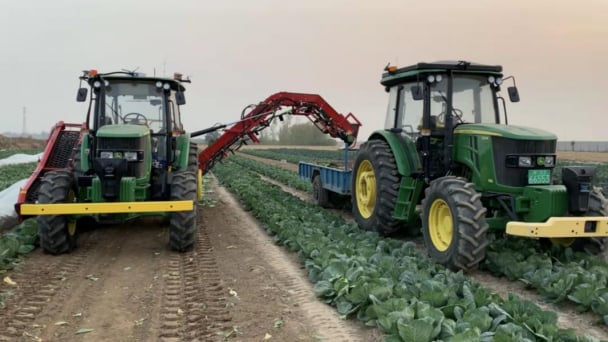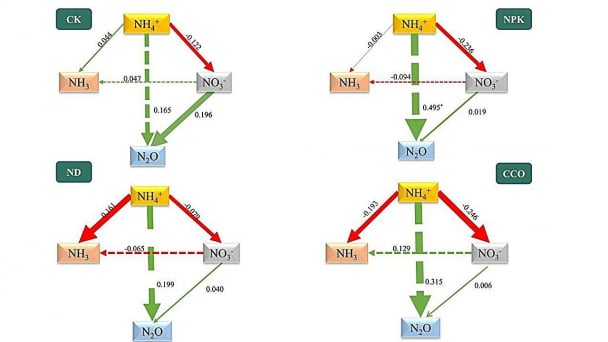June 28, 2025 | 23:25 GMT +7
June 28, 2025 | 23:25 GMT +7
Hotline: 0913.378.918
June 28, 2025 | 23:25 GMT +7
Hotline: 0913.378.918
How many? A new study has the answer.
Researchers on Monday (Jan 31) unveiled the world's largest forest data base, comprising more than 44 million individual trees at more than 100,000 sites in 90 countries - helping them to calculate that Earth boasts roughly 73,300 tree species.
That figure is about 14 per cent higher than previous estimates. Of that total, about 9,200 are estimated to exist based on statistical modelling but have not yet been identified by science, with a large proportion of these growing in South America, the researchers said.
South America, home to the enormously biodiverse Amazon rainforest and farflung Andean forests, was found to harbour 43 per cent of the planet's tree species and the largest number of rare species, at about 8,200.
Trees and forests are much more than mere oxygen producers, said Roberto Cazzolla Gatti, a professor of biological diversity and conservation at the University of Bologna in Italy and lead author of the study published in the journal Proceedings of the National Academy of Sciences.
"Without trees and forests, we would not have clean water, safe mountain slopes, habitat for many animals, fungi and other plants, the most biodiverse terrestrial ecosystems, sinks for our excess of carbon dioxide, depurators of our polluted air, et cetera," Gatti said.
"Indeed, our society often considers forests as just pieces of wood and trees as natural resources, ignoring their fundamental role for humankind in providing ecosystem services that go behind the mere economic - even if important - timber, paper and pulp production. From trees and forests humanity gets inspiration, relaxation, spirituality and essentially the meaning of life," Gatti added.
South America was found to have about 27,000 known tree species and 4,000 yet to be identified. Eurasia has 14,000 known species and 2,000 unknown, followed by Africa (10,000 known/1,000 unknown), North America including Central America (9,000 known/2,000 unknown) and Oceania including Australia (7,000 known/2,000 unknown).
"By establishing a quantitative benchmark, our study can contribute to tree and forest conservation efforts," said study co-author Peter Reich, a forest ecologist at the University of Michigan and University of Minnesota.
"This information is important because tree species are going extinct due to deforestation and climate change, and understanding the value of that diversity requires us to know what is there in the first place before we lose it," Reich said. "Tree species diversity is key to maintaining healthy, productive forests, and important to the global economy and to nature."
This study did not tally the total number of individual trees globally, but 2015 research led by one of the co-authors put that figure at about 3 trillion.
The new study pinpointed global tree diversity hot spots in the tropics and subtropics in South America, Central America, Africa, Asia and Oceania. It also determined that about a third of known species can be classified as rare.
The researchers used methods developed by statisticians and mathematicians to estimate the number of unknown species based on the abundance and presence of known species. Tropical and subtropical ecosystems in South America may nurture 40 per cent of these yet-to-be-identified species, they said.
"This study reminds us how little we know about our own planet and its biosphere," said study co-author Jingjing Liang, a professor of quantitative forest ecology at Purdue University in Indiana. "There is so much more we need to learn about the Earth so that we can better protect it and conserve natural resources for future generations."
(Reuters)

(VAN) In the suburbs of Beijing, there is an agricultural center spanning over 150 hectares dedicated to research, demonstration, and application of high-tech and precision agriculture.

(VAN) Researchers from the Institute of Applied Ecology of the Chinese Academy of Sciences have developed a new environmentally friendly fertilizer additive that significantly enhances crop yields while reducing emissions of harmful gases.

(VAN) Poultry production in Poland, which has only started recovering from devastating bird flu outbreaks earlier this year, has been hit by a series of outbreaks of Newcastle disease, with the veterinary situation deteriorating rapidly.

(VAN) Extensive licensing requirements raise concerns about intellectual property theft.

(VAN) As of Friday, a salmonella outbreak linked to a California egg producer had sickened at least 79 people. Of the infected people, 21 hospitalizations were reported, U.S. health officials said.

(VAN) With the war ongoing, many Ukrainian farmers and rural farming families face limited access to their land due to mines and lack the financial resources to purchase needed agricultural inputs.

(VAN) Vikas Rambal has quietly built a $5 billion business empire in manufacturing, property and solar, and catapulted onto the Rich List.